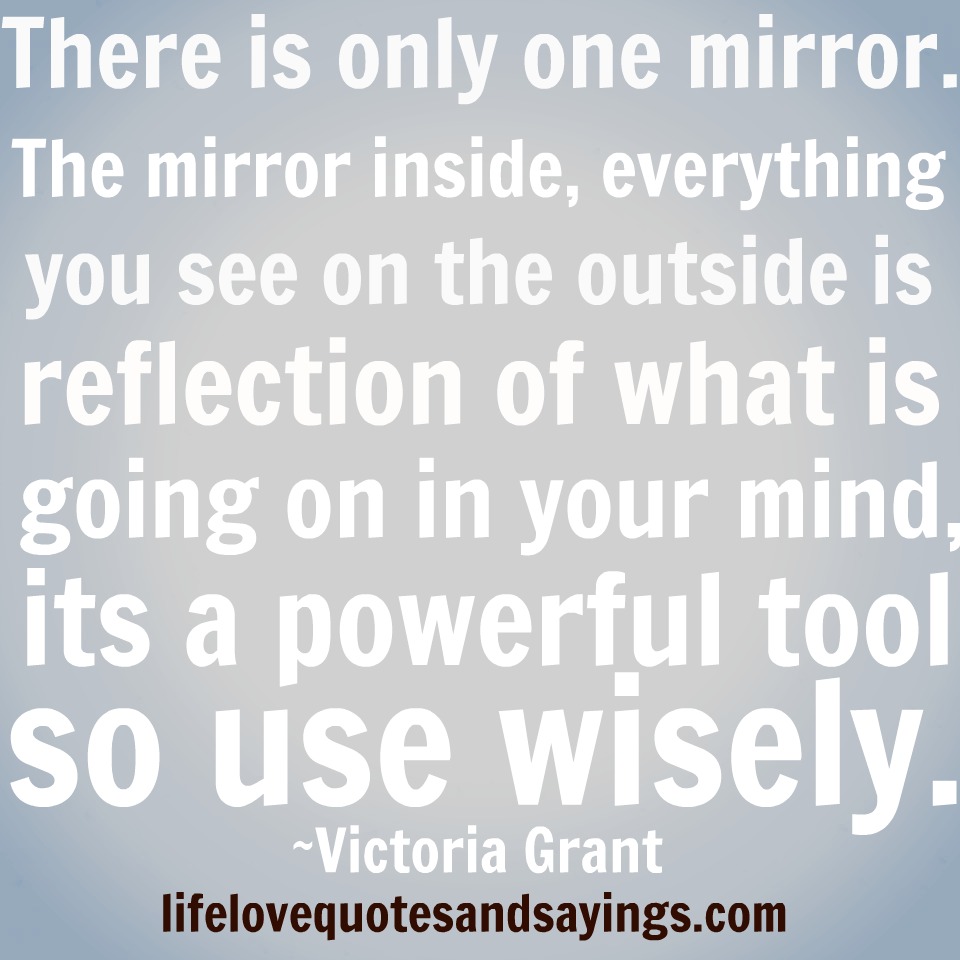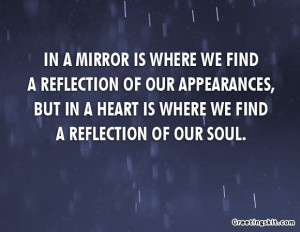
There are four classes of Idols which beset men’s minds.
#Quotes on reflection mirror full
If any generation has the right to claim that it bore the full bewildering, world-shrinking brunt of such a revolution, it is not us-it is our nineteenth- century forebears.

But the electric telegraph was, in many ways, far more disconcerting for the inhabitants of the time than today’s advances are for us. Today, we are repeatedly told that we are in the midst of a communications revolution. Such reactions are amplified by what might be termed chronocentricity-the egotism that one’s own generation is poised on the very cusp of history. We can expect the same reactions to whatever new inventions appear in the twenty-first century. Given a new invention, there will always be some people who see only its potential to do good, while others see new opportunities to commit crime or make money.

They are the direct consequences of human nature, rather than technology. The hype, skepticism and bewilderment associated with the Internet-concerns about new forms of crime, adjustments in social mores, and redefinition of business practices- mirror the hopes, fears, and misunderstandings inspired by the telegraph. And do you know what “the world” is to me? Shall I,show it to you in my mirror? This world: a monster of energy, without beginning, without end a firm, iron magnitude of force that does not grow bigger or smaller, that does not expend itself but only transforms itself as a whole, of unalterable size, a household without expenses or losses, but likewise without increase or income enclosed by “nothingness”' as by a boundary not by something blurry or wasted, not something endlessly extended, but set in a definite space as a definite force, and not a space that might be “empty” here or there, but rather as force throughout, as a play of forces and waves of forces, at the same time one and many, increasing here and at the same time decreasing there a sea of forces flowing and rushing together, eternally changing, eternally flooding back, with tremendous years of recurrence, with an ebb and a flood of its forms out of the simplest forms striving toward the most complex, out of the stillest, most rigid, coldest forms toward the hottest, most turbulent, most self-contradictory, and then again returning home to the simple out of this abundance, out of the play of contradictions back to the joy of concord, still affirming itself in this uniformity of its courses and its years, blessing itself as that which must return eternally, as a becoming that knows no satiety, no disgust, no weariness: this, my Dionysian world of the eternally self-creating, the eternally self-destroying, this mystery world of the twofold voluptuous delight, my “beyond good and evil,” without goal, unless the joy of the circle itself is a goal without will, unless a ring feels good will toward itself-do you want a name for this world? A solution for all its riddles? A light for you, too, you best-concealed, strongest, most intrepid, most midnightly men?- This world is the will to power-and nothing besides! And you yourselves are also this will to power-and nothing besides!


 0 kommentar(er)
0 kommentar(er)
